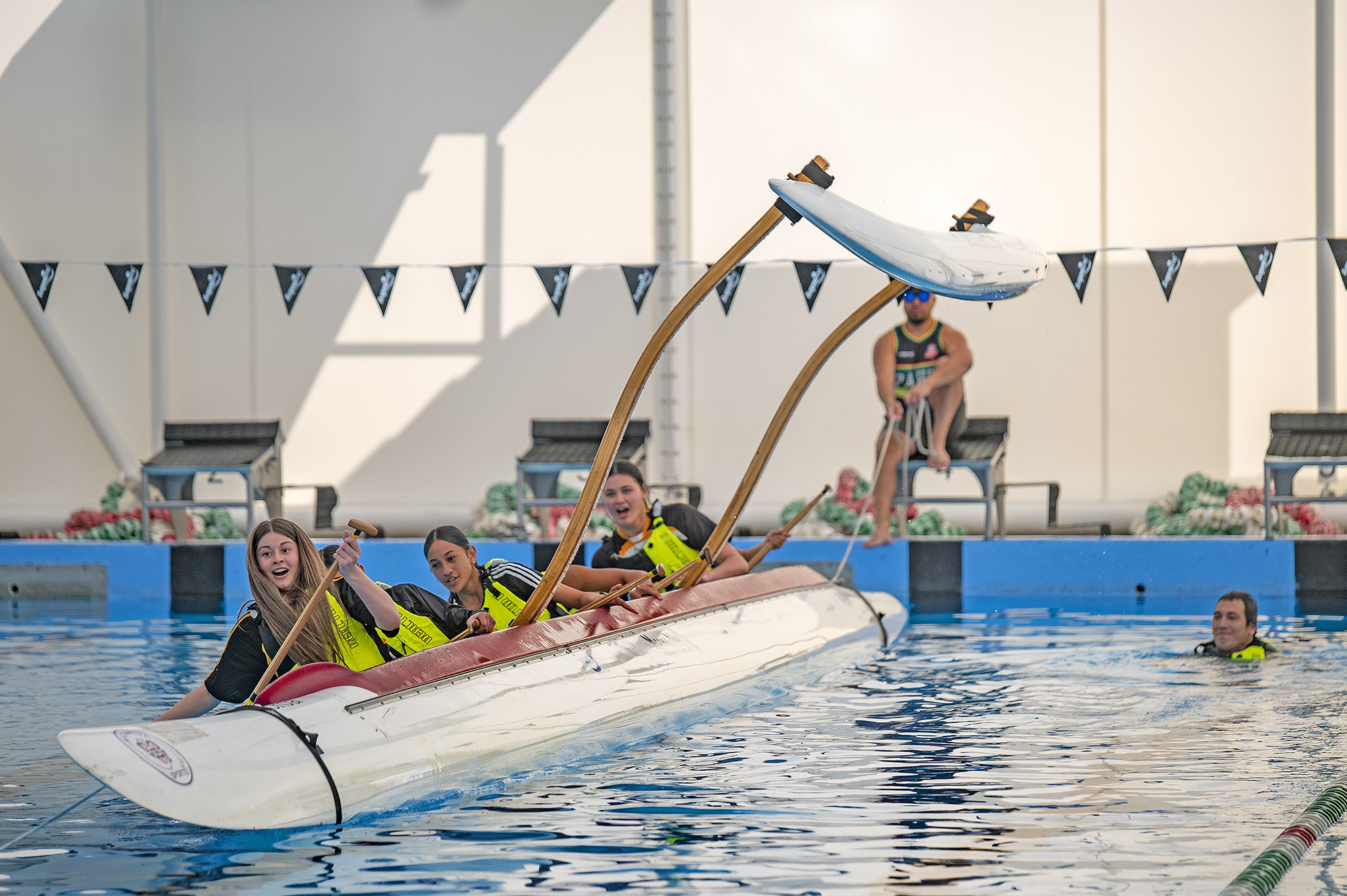Capsizing for credits

STAY ALERT: Hemi Wahapango catches WHS students off guard with a quick countdown to the capsize simulation. Photo Troy Baker E4925-009
Alisha McLennan
ALMOST 100 Whakatāne High School students have had the opportunity to improve their water safety skills with a waka ama capsizing workshop at the Whakatāne Aquatic Centre.
The year 11 outdoor education classes teamed up with Mataatua Sports Trust last week for the waka ama health and safety course, which saw a waka ama taken into the pool.
Mataatua Sports Trust member Chris Marjoribanks said the trust applied for funding for lifejackets from Whakatāne District Council’s Te Puaha Fund and chose to test them at the students’ final practical assessment, at which they practised capsizing the waka, then righting it and bailing it out.
The students also had to ensure they could escape from the overturned waka. Through these exercises they could earn Level 2 NCEA credits.
“We want to give young people the appropriate training around water safety, how to wear a lifejacket, what to do when your waka capsizes and how they can manage themselves in that situation,” Mr Marjoribanks said.
“This is a positive step forward for promoting water safety for our rangatahi.”
Programme organiser Hemi Wahapango said he had seen increased confidence in the teenagers over the six-week course.
“Students had a lot more respect and pride for themselves, it was cool to see their change in attitude and how it developed over the programme,” he said.
“We were able to teach them about the use of lifejackets and being safe when a canoe tips. It’s a bit different to rolling back a kayak, you have 140 kilograms to roll back over and then bail out.”
He said the programme’s first iteration was successful, and all 99 students passed the unit, each receiving 18 credits towards their Level 2 qualification.
He is hoping to bring the programme to other Eastern Bay schools next year.
Recent world silver waka ama medallist and year 12 student Kaedyn Thrupp also shared and demonstrated his waka ama skills.
“Someone of his calibre and age gives the students belief they can become world paddlers,” Mr Wahapango said.
Mr Wahapango, Tehore Smith and Kaedyn ran the event over the two days.
WHS outdoor education teacher Rachelle Owen-Cooper said: “Our local area is surrounded by all different types of water.
“It’s an interesting place, and we wanted students to explore their connection to water and look at how they interact with it, as well as its historical and cultural significance,” she said.
She said students showed development in leadership and practical skills, as well as theoretical knowledge.
“We had a real buzz from students; kids started to really enjoy their learning,” she said.
Some students have expressed interest in competing in waka ama, and Mr Marjoribanks said the team behind the programme was looking at getting Whakatāne High School and other secondary schools to nationals in Rotorua next year.
Next up for Mataatua Sports Trust is a ki o rahi tournament in term four in collaboration with Te Kura Kaupapa Māori o Te Orini ki Ngāti Awa, and work towards a Mataatua Waka Ama festival in Whakatāne next year.
Mataatua Sports Trust is funded by Sport NZ under He Oranga Poutama and works with kura to deliver traditional Māori games such as waka ama, ki o rahi, mau rakau and taonga takaro.